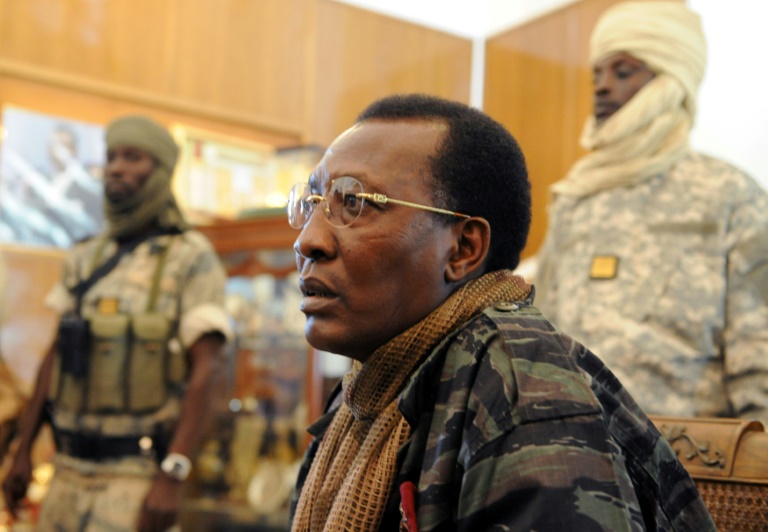
N'DJAMENA - Chad woke up to an uncertain future on Wednesday as the son of slain president Idriss Deby Itno took charge following the death of his father, who had ruled the country with an iron fist for three decades.
The presidency moved swiftly to put the reins of power in the hands of General Mahamat Idriss Deby Itno and tear up Chad's constitution, establishing a "Transition Charter" that lays out a new basic law for the desert country of 16 million people.
The new charter issued Wednesday proclaimed that Mahamat 37, a career soldier like his father, will "occupy the functions of the president of the republic" and also serve as head of the armed forces.
Mahamat had already been named the head of a military council on Tuesday soon after the announcement of Deby's death in combat, a move that sidelined other political institutions in Chad and has been branded a coup d'etat by opposition groups.
Deby, 68, died only a day after provisional results declared him the winner of an April 11 election giving him a sixth term in office.
The outcome was never in serious doubt, with a divided opposition, boycott calls, and a campaign in which demonstrations were banned or dispersed.
The military council has already dissolved parliament and the government, and been tasked with leading an 18-month transition period ahead of new "free and democratic" elections.
Anxious Western powers including Chad's former colonial master France have called for a peaceful transition that paves the way for a civilian government.
- Rebel incursion -
The West has lost a key partner in its anti-jihadist campaign in the unstable Sahel region particularly due to the relative strength of Chad's military and its ability to supply weaponry and soldiers.
His demise came only days after the army had claimed a "great victory" against fighters from the Front for Change and Concord in Chad (FACT) who had launched an incursion from Libya on the same day as the presidential election.
Deby, a herder's son who took power on the back of a coup in 1990, had on previous occasions gone to the frontlines as government forces battled rebels.
The military said Monday it had killed more than 300 rebels and captured 150 others, with the loss of five soldiers.
But FACT spokesman Kingabe Ogouzeimi de Tapol told AFP on Tuesday that the rebels would pursue their offensive after a pause for Deby's state funeral on Friday.
"We categorically reject the transition," he said. "Our troops are en route towards N'Djamena."
Gun-toting soldiers in fatigues and members of the red-bereted presidential guard were seen patrolling the capital in the aftermath of Deby's death.
But on Wednesday, banks, markets and most shops were open while the national flag flew at half-mast on public buildings.
- 'Security crossroads' -
Analysts warned that Deby's passing threatened to bring more instability to a region where jihadist groups are gaining in strength.
"Chad is at a critical security crossroads for the whole of the African continent and for many years now has been not just a staunch Western ally but an effective security partner," said Cameron Hudson, a senior fellow and Africa expert at the Atlantic Council think-tank.
France, which has a force of 5,100 in the Sahel region, said it insisted on the "stability and territorial integrity" of Chad in the face of the rebel push towards the capital.
The French presidency also underscored "the importance of the transition taking place under peaceful conditions".
There should also be "a spirit of dialogue with all political and civil society actors, and allowing the rapid return to inclusive governance based on civil institutions," it added.
Both the United States and the European Union also offered condolences and urged a peaceful transition of power.
UN chief Antonio Guterres said Deby was a "key partner" and had made significant contributions to help "combat terrorism, violent extremism and organised crime in the Sahel".
One analyst said the country was "entering uncharted territory".
"A damaging succession crisis is to be feared, while government forces and rebels have been fighting each other in the north and centre of the country," said Richard Moncrieff of the International Crisis Group think tank.